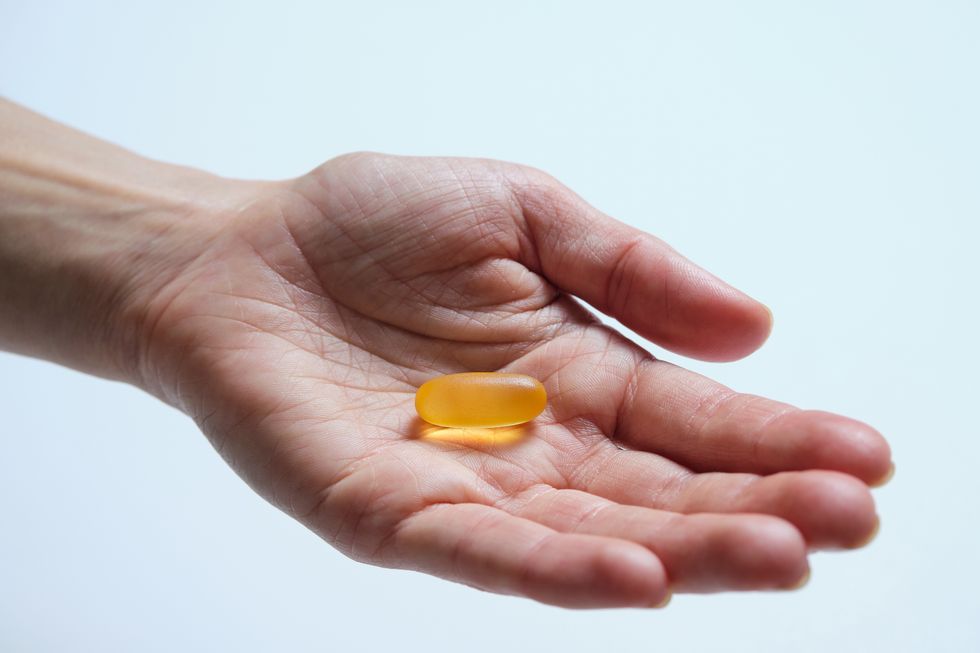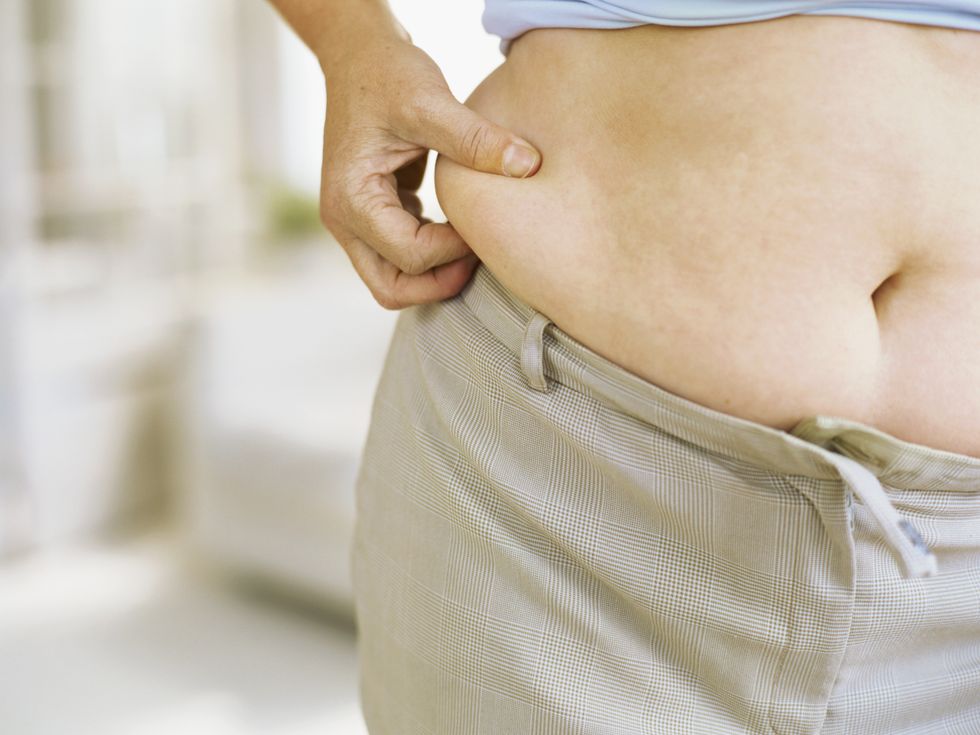Belly fat is linked to hormonal imbalances during menopause
GETTY
Several key supplements and dietary approaches may help women combat belly fat during menopause
Don't Miss
Most Read
Trending on GB News
As women navigate menopause, many struggle with hormonal changes causing the body to store more fat around the abdominal region.
By understanding the root causes of abdominal weight gain, however, many women can regain control over their body composition.
Dr Mary Claire Haver highlighted several key supplements and dietary approaches that could help women combat this common concern.
She explained that borage oil supplements have been identified as a promising solutions for managing menopausal weight gain around the midsection.

Borage oil is rich in gamma linolenic acid
GETTY
Naturally extracted from the seeds of the borage plant, the oil was shown to significantly reduce belly fat in one scientific study.
“Borage oil is rich in gamma linolenic acid (GLA). In one study there was a significant reduction in waste hip ratio in menopausal participants who took a supplement versus a placebo,” Dr Haver noted.
The oil, which is traditionally used for treating inflammation and cardiovascular conditions, may support weight loss by reducing fat accumulation and improving insulin sensitivity.
More research is needed to confirm this link, however, as some studies found that it didn't directly improve body mass index and resting metabolic rate.
Another important dietary component to consider during menopause, according to Dr Haver, is protein, as it plays a crucial role in managing menopausal belly fat.
"Studies have shown that people who eat at least one to 1.5 grams of protein for every kilogram of lean body mass have less belly than people who eat less," she noted.
Soluble fibre consumption has equally been linked to reduced belly fat through its impact on gut bacteria, according to the expert.
"People who consume more soluble fibre have a great variety of gut bacteria," shared Dr Haver. "A new study shows that individuals with a varied gut microbiome have a lower chance of belly fat."
LATEST DEVELOPMENTS

Some supplements may support weight loss during menopause
GETTY
The benefits are measurable for fibre too, with Dr Haver noting that "for every 10 grams of soluble fibre you consume, you have a 3.7 less belly fat".
"The bottom line is a good source of omega-3 fish oil, probiotics, and fibre supplements can help a great deal," research suggests.
These supplements, combined with appropriate protein intake, may help some women manage menopausal weight changes.
If symptoms persist, however, women are encouraged to talk to their doctor about additional alternative treatments.








